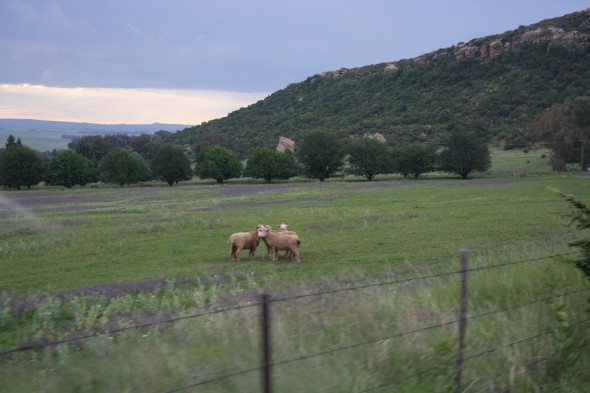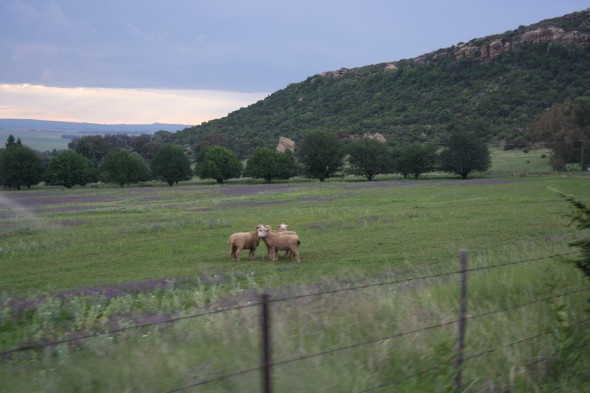
My African Heritage…and those Land Claim Laws
The news in South Africa over the last few months has dominated with a few headlines about the Oscar Trial, that weird EFF political party, some crazy ANC lady wanting the South African anthem broadcast twice a day and the new LandAct Law signed by Zuma a few months ago. I am not interested in […]

The news in South Africa over the last few months has dominated with a few headlines about the Oscar Trial, that weird EFF political party, some crazy ANC lady wanting the South African anthem broadcast twice a day and the new LandAct Law signed by Zuma a few months ago. I am not interested in the first three headlines, but the fourth sends shivers down my spine!

For hundreds of years my family have farmed in the Eastern Cape and my hubby’s family have farmed on their land for over 102 years in the Free State…and in all those years they have weathered the storm of droughts, hardships and found a way to cultivate the African climate.
These farms have been passed down from generation to generation, thus they are a product of the blood, sweat and tears of over seven generations of Pringles and Browns in the Eastern Cape. I am very proud of our farming heritage and the history of our family in South Africa. The Pringles of Lyndoch laid the first foundation stones of Port Elizabeth in the Eastern Cape and they have contributed to the growth of the agricultural sector of South Africa.
However, if the new Land Claim Laws are to be enforced all that is going to change. The new law means that the government is going to expropriate half of every commercial farm in South Africa and hand it over to farmworkers living and working on the property.
This means that the historic owners would retain half of their farms and the state would pay for the 50% taken for the workers, but the farmers will not see a penny of the cash paid for the farms – this would be put into trust aimed at investing and developing the farm for all shareholders of the farm.
While I support the underlying principles of developing new black farmers, I don’t believe in doing this at the expense of the more experienced current farmers.
Keep in mind that this is also going to effect the already farming black farmers as well, who worked very hard to buy their own farms and have established themselves within the farming community.
What is probably worse is that the government has not stopped to consider the repercussions of this law. This being that every forward-thinking farmer is going to start getting rid of staff at an alarming rate and rather automate their operations. Many farmers have started this already.
Families are coming together to work as a unit on the farm rather than hiring labour to do the job. And before the ANC wipe the dirt out of their eyes, half of the South African farming work force is going to be unemployed.
This will be similar to when the ANC government introduced the minimum wage regime in the farming sector, and within a few months more than one million jobs had been lost and the biggest losers were black farm workers.
Rabelani Dagada, a Development Economist based at the Wits Business School, recently wrote an article in the SA Breaking News where he said,”if you tell a lie several times, you may end up believing it. Moreover, some of your listeners may start to believe your lie.”
The ANC government is starting to believe the lie that White Farmers stole the land that they are farming on. In all honesty his article is one of brutal honesty and is refreshing to realize that we farming families are not alone in worrying about the alarming rate of South African farmers leaving the country to develop the Agricultural sectors of neighboring countries.
Why are we allowing such talented people to leave the country and treating them with disdain instead of finding a way for them to be involved in the development of South Africa?
While I have no claim to any of my ancestral farms in the Eastern Cape I know that they are in the hands of a handful of fantastic farmers and I am proud to know that my brothers are on the brink of joining that strong legacy.
While I’m sitting in Dubai a few thousand miles away from our home, my heart longs to feel the African soil between my toes and I know that one day my husband, my son and I will also contribute to an already successful farming lineage.